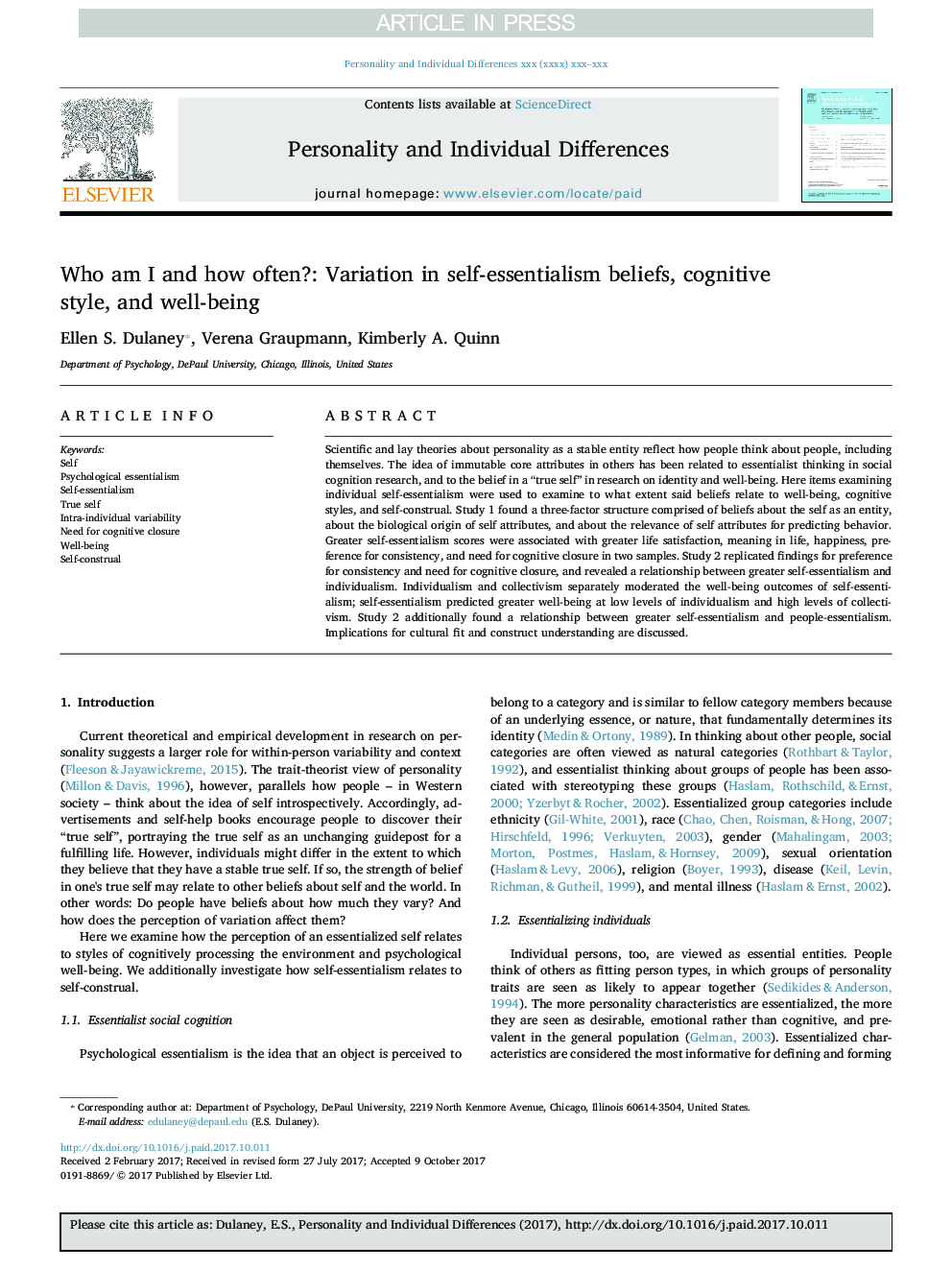| Article ID | Journal | Published Year | Pages | File Type |
|---|---|---|---|---|
| 11016193 | Personality and Individual Differences | 2019 | 12 Pages |
Abstract
Scientific and lay theories about personality as a stable entity reflect how people think about people, including themselves. The idea of immutable core attributes in others has been related to essentialist thinking in social cognition research, and to the belief in a “true self” in research on identity and well-being. Here items examining individual self-essentialism were used to examine to what extent said beliefs relate to well-being, cognitive styles, and self-construal. Study 1 found a three-factor structure comprised of beliefs about the self as an entity, about the biological origin of self attributes, and about the relevance of self attributes for predicting behavior. Greater self-essentialism scores were associated with greater life satisfaction, meaning in life, happiness, preference for consistency, and need for cognitive closure in two samples. Study 2 replicated findings for preference for consistency and need for cognitive closure, and revealed a relationship between greater self-essentialism and individualism. Individualism and collectivism separately moderated the well-being outcomes of self-essentialism; self-essentialism predicted greater well-being at low levels of individualism and high levels of collectivism. Study 2 additionally found a relationship between greater self-essentialism and people-essentialism. Implications for cultural fit and construct understanding are discussed.
Keywords
Related Topics
Life Sciences
Neuroscience
Behavioral Neuroscience
Authors
Ellen S. Dulaney, Verena Graupmann, Kimberly A. Quinn,
